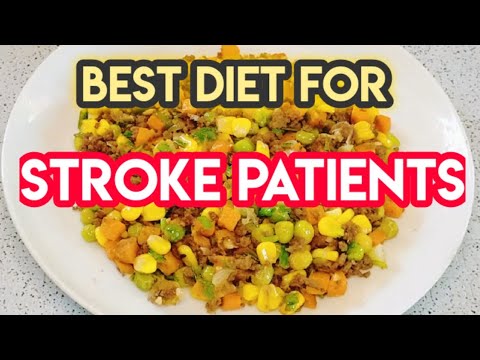
It is important to develop healthy habits as we age. These can be simple, like maintaining a healthy weight and getting plenty of physical activity. The right nutrition and exercise will strengthen your muscles and bones, reducing your risk of serious falls. They can also make your daily activities easier. Even if a weight-training set is not available, you can still exercise while watching television. These habits can be practiced even if you're not feeling the need to exercise.
Physical activity

Good health can be maintained by regular physical activity. According to the Physical Activity Guidelines For Americans, adults should be engaging in 150 minutes each week of moderate to vigorous intensity physical activity. If time is not an issue, this can be broken down into small increments of 10 to 15 minutes, two or more times per day. For people just starting to exercise, walking or biking may be a better choice.
Good nutrition
Healthy habits and good nutrition are easily forgotten during the finals rush. Students' attention spans can be stretched as finals and exams approach. Fortunately, a healthy lifestyle is not only beneficial for your overall health, it will also help you achieve the best results. There are many methods to make healthy food a priority.
Limit alcohol consumption
Drinking alcohol can increase the likelihood of developing several health problems. An example is the increased risk of getting cancer from alcohol. Less alcohol is better than none. According to the U.S. Department of Health and Human Services about 5-6 percent of all cancer cases are linked to alcohol intake. Further, more alcohol consumption can increase your chances of developing other medical conditions like obesity.
Avoid picky eating

Having a child that is picky about what she eats can be tough, but you don't have to give in to her demands. Create a nutritious mealtime that includes protein, vegetables, whole grains, and a small amount healthy carbohydrate. For this group, quinoa or pure oats are good options. You can also let your child help prepare her meals.
Making healthy habits permanent
Breaking bad habits is difficult but reshaping them is easier. Even small changes can produce permanent results if they are consistent. Healthy habits must be sustained in order to become habitual. Once established, a healthy habit creates a chain reaction in other areas and leads to new behaviors. You should make healthy habits permanent by making a commitment to them every day and rewarding them when they succeed. If your child is brushing their teeth, you can say "Go ahead." Do it."
FAQ
How can busy people lose fat?
Losing weight is as easy as eating less and working out more.
Weight gain is possible if you eat a lot of food. Exercise is important to lose weight. But if you combine these two simple habits, you'll start losing weight.
What Can You Lose in One Week?
Your body fat percentage determines how much weight you are able to lose. It is important to first calculate how much weight you wish to lose. Then, determine your BMI. Your BMI (Body Mass Index) tells you how much weight should be lost to reach your goal. If your BMI is 25 or greater, you're overweight. If your BMI falls below 30 you are considered obese.
Your BMI is calculated at 28.7 if your weight is 200. This would mean that you'd have to lose about 70 pounds in order to reach a healthy weight. To see if you're overweight, visit www.healthyminds.com/bmi/.
Once you have your BMI, you are able to use this formula for calculating how many pounds each week you will lose.
(Your Goal Weight - Current Weight)/BMI * 7 Number Of Pounds Lost Per Week
For 50 pounds to be lost in one month, it would take 2 weeks of exercise. 56 days is equivalent to 7 pounds per day. That works out to 8.3 pounds lost per week.
You could also try this calculator from www.weightlosscalculator.net. It will give you an approximate estimate of the calories you need to lose 1 pound each week.
Are there any side effects to intermittent fasting
Intermittent fasting is safe and has no side effects. But, it is possible to experience minor side effects if you plan poorly.
For example, if you skip breakfast, you might be irritable all day long. Other symptoms include headaches, dizziness and fatigue as well as muscle cramps.
These symptoms often disappear within a few hours.
How long should I do Intermittent fasting to lose weight?
It's not as easy to answer as you might think. For optimal fat loss, you need to take into account many factors. These are:
-
Your age. For example, if you're young (under 40), intermittent fasting may be too difficult for you because you have less time to recover from each day's fast. You may not have enough energy for a sustained period of daily fasting if you are older (over 60).
-
Your current body composition. Your current body composition. If you have a lot more muscle mass than you need, then you will likely be more successful with longer fasting periods. Shorter fasting might be more appropriate for you if you have less muscle mass.
-
How physically active. If you exercise regularly, you may need to extend your fasting window to ensure that you still get adequate rest between workouts.
-
Your past medical history. People with heart disease, diabetes, and cancer may require extra fasting monitoring.
-
How well do you tolerate stress? Stressful situations often cause us to eat more. This problem can be avoided by increasing the length of your fasting periods.
-
What type of diet do you follow? Certain diets, like ketogenic diets, may require even longer fasting periods.
-
Your quality of sleep. Also, a lack of sleep has been linked with increased appetites and decreased metabolism. It could take some experimentation to discover the best method for you.
-
The amount you eat of protein. A higher intake of protein may result in lower blood sugar levels. This will allow you to fast longer.
-
No matter if you are trying gain or lose weight. People trying to gain weight often need longer fasting periods than people trying to lose weight.
-
What percentage of calories do you consume during your fasting window? You might lose more fat if your daily calories are lower than those you consume.
-
Your fitness level. Faster people are more likely to be fit, and burn more calories during the day.
-
Your gender. Women tend to have a greater appetite than men, so they might need to fast for longer periods. Women generally have smaller appetites, so they may only need to fast for about 20-30 minutes every morning.
-
Your lifestyle. Do you get enough physical activity? Do you do a lot of exercise each week? Does your job involve sitting at a desk all day long? All these factors can have an impact on how much time you should speed.
-
How much do you spend per month on food? It doesn't always mean that you should spend a lot of money on groceries if you eat healthy foods. Whole grains are better than white bread and whole fruits are better than candy bars. Lean meats can also be saved.
-
How important it can be to control your appetite. You don't have to skip meals if you don’t want to.
How can I lose weight?
Many people want to lose weight. People lose weight for a variety of reasons. They want to live longer, be healthier, and live longer. There are many options for losing weight. Some of them include cardio training, strength training, yoga, pilates, running, swimming, cycling, etc. Each type of exercise comes with its own set of benefits and drawbacks. Walking would be the best exercise if you are trying to lose weight. If you want to build muscle mass and burn calories, however, lifting weights is the best option. We'll be discussing how to lose weight, and which exercise is best.
It is important to determine what type of diet you should follow when you want to lose weight. It doesn't mean you have to eat less, but it is important to avoid junk food and eat more fresh foods. Aim to consume no less than 2200 calories each day. Reduce your calorie intake if you are looking to lose weight more quickly. You will lose fat faster this way.
Exercise is a great way to lose weight quickly. Exercise helps you burn calories and increase metabolism. You must combine exercise and a healthy diet to lose weight. You will lose weight by exercising. Your body will burn fat more quickly if you do your workouts regularly. Regular workouts are a way to stay healthy. They help you stay active and prevent diseases such heart disease, diabetes, obesity, hypertension, among others.
You should try to walk as much as possible. Walking can burn around 500 calories an hour. Walk 30 minutes per day to burn around 1500 calories. One pound of fat will be lost per week if you walk 30 minutes each day. Jogging or running for 10 minutes is also possible. Running burns around 1000 calories per hour. For a goal of losing 5 pounds in 3 week's time, you should run for 20 mins three times a week.
For weight loss, it is best to combine exercise with healthy eating habits. Balance these two aspects.
Statistics
- Another study found that 24 weeks of weight training led to a 9% increase in metabolic rate among men, which equated to burning approximately 140 more calories per day. (healthline.com)
- According to Harvard Health, it's estimated that a 155-pound (70-kg) person burns around 167 calories per 30 minutes of walking at a moderate pace of 4 mph (6.4 km/h) (5). (healthline.com)
- One 6-month study showed that simply doing 11 minutes of strength-based exercises 3 times per week resulted in a 7.4% increase in metabolic rate, on average. (healthline.com)
- Among women, the increase in metabolic rate was nearly 4%, or 50 more calories per day (14Trusted Source (healthline.com)
External Links
How To
How to Lose Weight Fast Without Exercise
Fast weight loss is possible by eating fewer calories than you burn. This will cause your body to start burning fat stores for energy. In order to get enough calories your body will start to degrade muscle tissue. This can lead to some muscle loss. Although you can lose weight even if you aren't working out, it's likely that you'll lose more muscle mass.
The key to losing weight fast without working out is to reduce your calorie intake. Most people think they should reduce their food intake to lose weight, but this isn't true. When you're trying to lose weight, you want to make sure you're eating fewer calories than you're burning. So how much should you eat every day? It all depends on what activity you do daily. For example, a runner who walks 3 to 5 miles per day would only require 2,500 calories daily. An individual who works all day at a desk would consume around 1,600 calories each day. A person who exercises frequently (like lifting weights), would only need about 1,600 calories per day.
When you want lose weight, it is important to cut down on your caloric intake. Many people think that they should eat less food because they feel like they're starving themselves. This is not true. Your body doesn't care whether you're hungry or not; it just wants to function properly. Tracking your calorie intake is key to losing weight. Many apps online allow you to track calories. These apps include MyFitnessPal and Calorie Counter.